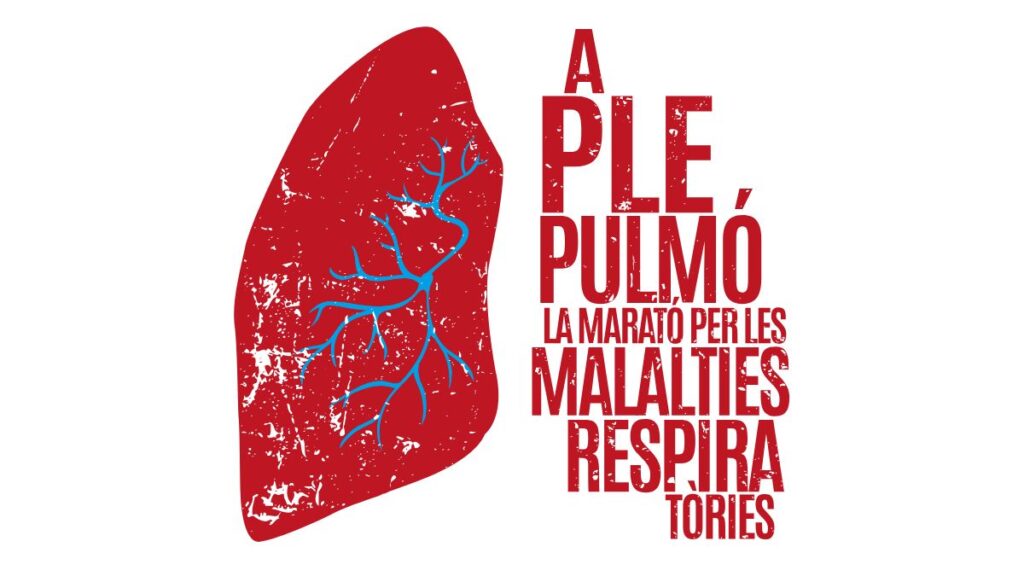Two research groups from the Institute for Bioengineering of Catalonia (IBEC) have been selected to participate in three projects under La Marató de 3Cat’s 2024 call for proposals, which focuses on respiratory diseases. This funding will support research into diagnosis and clinical prediction, with the aim of improving respiratory health.

The Institute for Bioengineering of Catalonia (IBEC) is leading three research projects in the 2024 edition of the Marató de 3Cat, a charity initiative aimed at raising funds for scientific research into incurable diseases. The principal investigators for the projects will be: Santiago Marco Colás, principal investigator of the Signal and Information Processing for Sensing Systems group at IBEC; Manuel Lozano García and Yolanda Castillo Escario, senior researcher and postdoctoral researcher of the Biomedical Signal Processing and Interpretation (BIOSPIN) group at IBEC, led by Professor Raimon Jané.
Focusing on respiratory diseases, the 3Cat 2024 Marathon has raised €10 million to fund 36 research projects led by 60 teams of researchers. These diseases affect over two million people in Catalonia alone, making them the second leading cause of hospital admissions and the third leading cause of death. Despite their severity, they remain poorly understood and often underdiagnosed. The selected projects aim to develop more accurate diagnostic tools and more efficient treatment and prevention strategies.
Predicting the severity of respiratory failure using omics and clinical data
The project, entitled Prediction of clinical severity in patients with acute hypoxic respiratory failure (AHRF) treated with high-flow nasal cannula using omics and clinical data (CNAFOMICS), has received €299,274 in funding. It will be led by Joan Ramon Masclans of the Hospital del Mar Research Institute and Santiago Marco Colás of IBEC.
The project aims to enhance the prediction of intubation requirements in patients with AHRF treated with high-flow nasal cannula. IBEC will develop an intelligent algorithm integrating clinical and metabolic data to anticipate risk, avoid treatment delays and reduce mortality, while improving the personalisation of therapy.
Exercise-Induced Laryngeal Obstruction (EILO) in Children and Adolescents
The project, titled ‘Exercise-Induced Laryngeal Obstruction (EILO) in Children and Adolescents with Exercise-Induced Dyspnoea’, has received €300,000 in funding. It will be led by Manuel Lozano García from IBEC and Diego Agustín Rodríguez Chiarabia from the Hospital del Mar Research Institute.
The project aims to describe the prevalence and clinical characteristics of EILO for the first time in Spain. This condition affects up to 16% of young people and can severely limit their physical activity. IBEC will develop a non-invasive method combining acoustic analysis of respiratory sounds and artificial intelligence techniques to improve EILO diagnosis, avoid invasive tests, and facilitate early detection.
New mobile health tools for the early diagnosis of sleep apnoea
The project, titled ‘Revolutionising the Early Diagnosis of Sleep Apnoea: New Mobile Health Tools (mScreenSleep)’, has received €299,750 in funding. It will be led by Yolanda Castillo Escario from IBEC and Júlia Sampol Sirvent from the Vall d’Hebron Research Institute.
The mScreenSleep project proposes the use of innovative technology based on smartphone sensors for the accessible and personalised diagnosis of sleep apnoea. IBEC will develop a monitoring system to collect data on chest movements, breathing sounds, and oxygen levels at night. The aim of this tool is to transform diagnosis by reducing costs and facilitating the early detection of a disorder that affects millions of people but often goes unnoticed.





